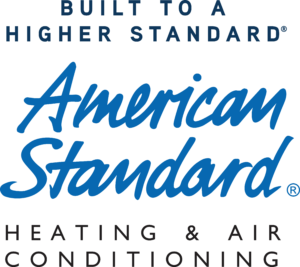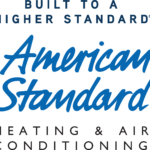5 Powerful Energy Efficiency Tips for Your Home
In a time of rising energy bills, unpredictable weather, and growing environmental awareness, homeowners are rethinking how they use energy at home. More than ever, families are searching for practical, lasting ways to stay comfortable while cutting costs and reducing their carbon footprint.
Whether you’re looking to cool your home efficiently in summer, stay cozy through winter, or simply take a smarter approach to energy use, improving energy efficiency can be a game-changing decision.
This comprehensive guide walks you through five powerful upgrades and habits that can make your home more energy efficient, reduce stress on your HVAC system, and increase long-term savings. With these simple, impactful strategies, you will take back control of your comfort and your utility bill.
1. Upgrade to a Smart Thermostat
A smart thermostat is one of the simplest upgrades that delivers big energy savings. These devices automatically adjust heating and cooling based on your preferences and schedule some even learn your habits over time.
Why it matters: Using a smart or programmable thermostat can save homeowners up to 10% per year on heating and cooling bills.
Top Benefits:
- Adjusts temperature when you’re away or asleep
- Remote control via smartphone
- Personalized energy reports
- Compatibility with smart home systems
2. Seal Air Leaks and Improve Insulation
Tiny cracks and gaps around doors, windows, and walls can leak heated or cooled air—forcing your system to work harder. Sealing these leaks and adding insulation is one of the most cost-effective ways to boost energy efficiency.
Quick Fixes:
- Caulk or weatherstrip around window and door frames
- Add insulation in attics and crawlspaces
- Use draft stoppers for doors
Why it matters: Sealing leaks and insulating can save significantly on heating and cooling costs while improving indoor comfort.
3. Upgrade to an Energy-Efficient HVAC System
An outdated HVAC system can be a major energy drain. Replacing it with a high-efficiency unit ensures better performance and lower utility bills. This is a crucial step for anyone focused on energy efficiency.
Key Features to Look For:
- SEER rating of 16 or higher
- Variable-speed motors
- Two-stage or multi-stage compressors
- Smart thermostat compatibility
Why it matters: Energy-efficient HVAC systems use less electricity and can cut annual energy expenses considerably.
4. Switch to LED Lighting and Smart Controls
Lighting can account for a significant portion of your electric bill. Swapping old bulbs for LED alternatives and adding automation features brings instant energy savings and improves overall energy efficiency in your home.
Benefits of LED and Smart Lighting:
- LEDs use up to 75% less energy
- Bulbs last 25 times longer than incandescent ones
- Smart switches and timers optimize use
Pro Tip: Use motion sensors for exterior lighting and dimmers indoors to reduce usage further.
5. Prioritize Regular HVAC Maintenance
Even high-efficiency systems lose their edge without upkeep. Routine HVAC maintenance ensures your system is running at peak performance year-round.
What to Include in Your Maintenance Routine:
- Replace air filters every 1–3 months
- Clean condenser coils and drain lines
- Check for duct leaks and thermostat calibration
Why it matters: Regular HVAC maintenance can reduce energy use by 10–20% and help you avoid costly breakdowns.
Frequently Asked Questions (FAQs)
1. How do I know if my home is energy efficient?
Schedule a professional home energy audit. It evaluates your insulation, air leaks, HVAC system, and overall performance in terms of energy efficiency.
2. What SEER rating should I look for in a new HVAC system?
Choose systems with a SEER rating of at least 16. Higher ratings offer greater efficiency and long-term savings.
3. Is a smart thermostat worth the investment?
Yes. A smart thermostat can lower energy bills, increase comfort, and often pay for itself within a few years.
4. How often should HVAC filters be replaced?
Check filters monthly and replace every 1–3 months, especially during heavy use seasons. This is a key part of good HVAC maintenance.
5. Can I do my own air sealing?
Yes. With basic tools like caulk and weatherstripping, many air leaks can be sealed as a DIY project.
6. How much can I save by following these tips? Homeowners can typically cut energy bills by 20–30% annually by combining these five upgrades focused on energy efficiency.
Contact Rose City Air
Ready to simplify your home and increase comfort? Rose City Air is here to help. We specialize in energy-efficient HVAC solutions that make your downsized space more comfortable, healthier, and cost-effective.
Visit rosecityair.com or call us today at (229) 221-8820 to schedule an energy audit, AC tune-up, or indoor air quality check. Whether you’re living large in a small home or just clearing the clutter, we’re your partner in peace, simplicity, and clean air.
Rose City Air is your local American Standard Customer Care heating and air condioning dealer in Thomasville, GA.










